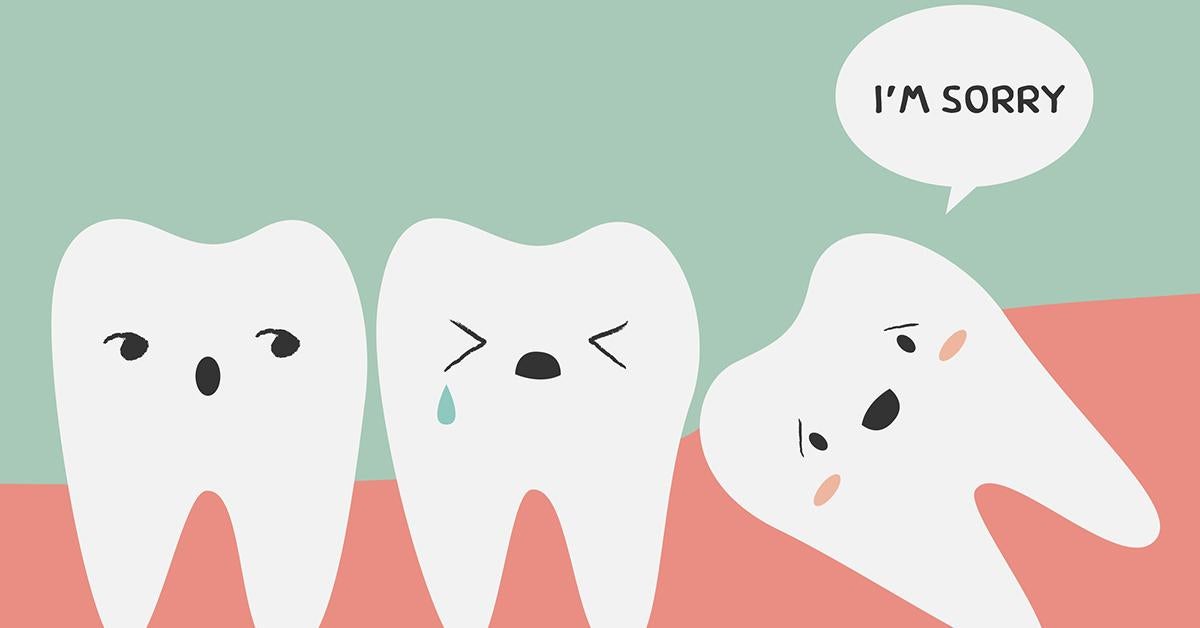What is wisdom teeth?
Wisdom teeth are the third set of molars that start to come through between 17-30 years. In some situations, this is quiet troublesome and often requires urgent attention to be sort. The removal of wisdom teeth is a relatively common procedure performed by qualified and experienced dentists or oral surgeons.
You will require an examination and diagnostic tests such as X-rays or cone beam CBCT scan .
Why do I have to get my wisdom teeth removed?
Your wisdom teeth may be erupting in the wrong direction and orientation, which can damage other teeth or structures in the jaw
Your jaw may be too small to accommodate all your teeth leading to excessive crowding and therefore reducing the chance of your wisdom teeth coming through. We call this impaction— and can be potentially harmful to adjacent bone or teeth
If your wisdom tooth does not fully erupt it makes it more difficult to clean and especially bacteria that can get lodged in, causing infection
Pathology such as a cyst ( fluid-filled sac) may form around the unerupted wisdom tooth, which can lead to infection and injury to the adjacent tissues including nerves, blood vessels and bone.
There are times when it is prudent to have the wisdom teeth removed before symptoms develop. But, as with all medical procedures, its benefits must be weighed against the risks which could include complications. Your dentist would provide more information specific to you.
The Extraction Procedure
The treatment can be done pain free by experienced clinicians possibly with only a local anaesthetic that numbs the area and stops you from experiencing any pain; however often multiple wisdom teeth are being extracted at one visit and other additional options such as sedation or a general anaesthetic may be administers. Your dentist can discuss what type of anaesthesia that's best for you before the procedure.
After the Procedure
The recovery period after wisdom tooth surgery lasts between 1 to 7 days depending on the severity of the procedure and the patient’s own biological and physiological response. During this time, you rest and nutrition is advised to encourage healing. Taking regular pain medication as prescribed. It's normal to experience some bleeding the surgical site. However soon after the surgery this is usually controlled by apply gentle pressure by biting with guaze pads and avoiding rinsing or spitting. Also lying with the head elevated rather than flat. In the first 24 hours after the procedure the use of ice packs on the side of the cheek of the procedure for a few minutes at a time may help reduce swelling. Rinsing the mouth with warm salt water several times a day can also help relieve discomfort and keep the wounds clean.
You should keep up with nutrition and eat soft foods for a few days after the extraction and then progress to a normal diet as tolerated.
Continue brushing carefully and follow up with your dentist is important if there are any concerns.

Live Q&A: Garden maintenance with Crewcut
This Wednesday, we are having another Neighbourly Q&A session. This time with John Bracewell from Crewcut.
John Bracewell, former Black Caps coach turned Franchisee Development Manager and currently the face of Crewcut’s #Movember campaign, knows a thing or two about keeping the grass looking sharp—whether it’s on a cricket pitch or in your backyard!
As a seasoned Crewcut franchisee, John is excited to answer your lawn and gardening questions. After years of perfecting the greens on the field, he's ready to share tips on how to knock your garden out of the park. Let's just say he’s as passionate about lush lawns as he is about a good game of cricket!
John is happy to answer questions about lawn mowing, tree/hedge trimming, tidying your garden, ride on mowing, you name it! He'll be online on Wednesday, 27th of November to answer them all.
Share your question below now ⬇️

Calling All Puzzle Masters! Can You Solve This?
When John was six years old he hammered a nail into his favorite tree to mark his height.
Ten years later at age sixteen, John returned to see how much higher the nail was.
If the tree grew by five centimetres each year, how much higher would the nail be?
Do you think you know the answer to our daily riddle? Don't spoil it for your neighbours! Simply 'Like' this post and we'll post the answer in the comments below at 2pm.
Want to stop seeing riddles in your newsfeed?
Head here and hover on the Following button on the top right of the page (and it will show Unfollow) and then click it. If it is giving you the option to Follow, then you've successfully unfollowed the Riddles page.

Win this brand new home!
Experience the perfect blend of country charm and city convenience in Clarks Beach, Auckland!
For just $15 a ticket, you could win this brand-new, fully furnished Jennian home, valued at over $1 million.
This home offers three bedrooms, spacious kitchen and living areas, and a double garage.
Whether you decide to make it your dream home, a holiday retreat, a rental property or simply sell it, it’s still a life-changing prize.
Don’t wait—get your tickets today at heartlottery.org.nz.







 Loading…
Loading…














